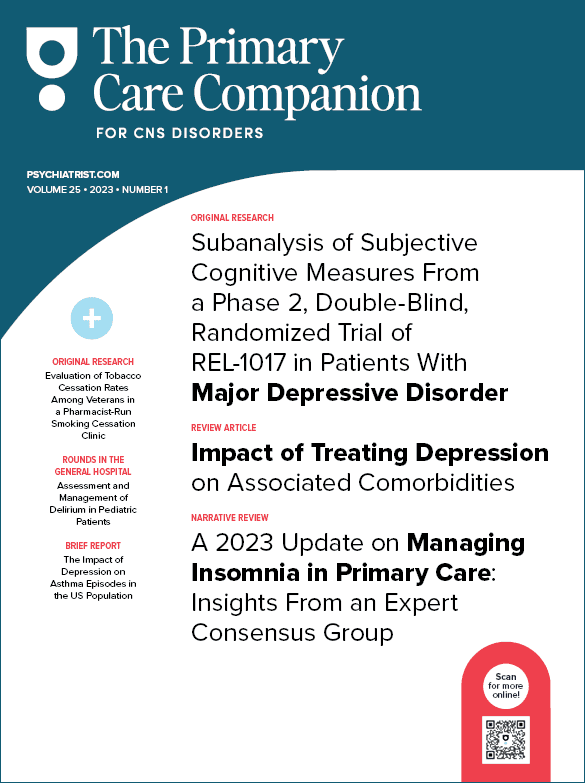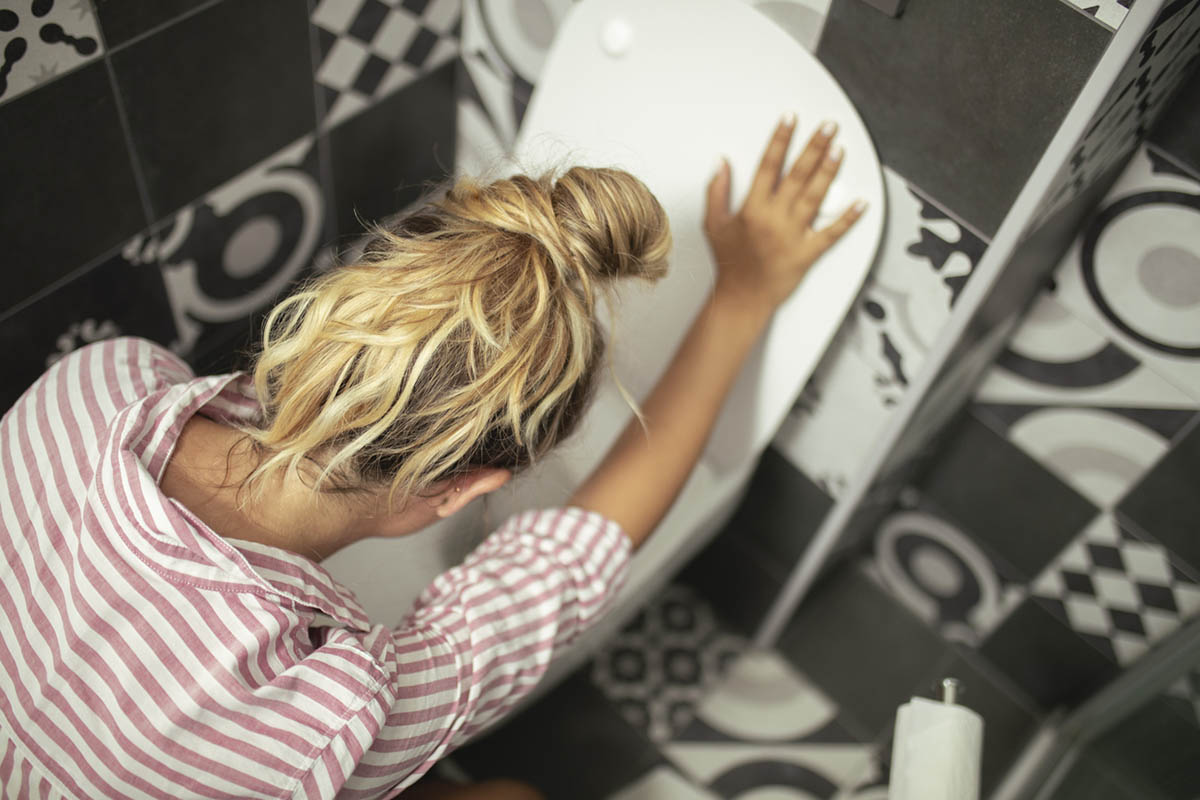
Prim Care Companion CNS Disord 2022;24(1):21cr03158
To cite: Uvais NA. Bipolar mania following ChAdOx1-19 vaccination. Prim Care Companion CNS Disord. 2022;24(1):21cr03158.
To share: https://doi.org/10.4088/PCC.21cr03158
© Copyright 2021 Physicians Postgraduate Press, Inc.
aDepartment of Psychiatry, Iqraa International Hospital and Research Centre, Calicut, Kerala, India
*Corresponding author: N. A. Uvais, MBBS, DPM, Iqraa International Hospital and Research Centre, Malaparamba, Calicut, Calicut, Kerala 673009, India ([email protected]).
The impact of coronavirus disease 2019 (COVID-19) infection on the mental health of patients and survivors is well documented. There are multiple reasons for the higher prevalence of psychiatric disorders among patients with COVID-19 infection: biological factors such as neurotropism of the virus, psychological factors like fear of infection and stress, and social factors such as social isolation, job loss, and family loss.1 There are a few reports of mania induced by COVID-19 infection.2 One of the potential etiologic factors for the appearance of mania in patients with COVID-19 infection is the inflammatory response following the infection.2 A milder version of similar inflammatory response is theoretically possible following COVID-19 vaccination. There are a few reports of mood symptoms following COVID-19 vaccination.3,4 Here, a case is presented of a woman who experienced a sudden relapse of bipolar mania within a few days of receiving COVID-19 vaccination.
Case Report
The patient was a 52-year-old woman with a history of bipolar disorder for the last 11 years, which was well controlled for the last 7 years on her regimen of medications that included haloperidol 5 mg/d, quetiapine 50 mg/d, and trihexyphenidyl 6 mg/d. She received her first dose of COVID-19 vaccine (ChAdOx1-S/nCoV-19 vaccine) in June 2021, following which she developed mild fever and myalgia that subsided in 2 to 3 days. During this period, she started having reduced sleep at night with no tiredness in the morning. She also became hyperactive, over talkative, demanding, and irritable. Her confidence increased, and she expressed big plans. Considering her significant irritability and disruption in the home environment, she was admitted to a tertiary care teaching hospital in the district. Her mental status examination showed overprotective speech, increased psychomotor behavior, flight of ideas, inflated self-esteem, and elated affect. The physical examination and routine blood investigations (random blood sugar, renal function test, serum electrolytes, thyroid function test, hemogram, liver function tests, and lipid profile) were within normal limits. During the hospital stay, her medications were optimized (haloperidol 15 mg/d, quetiapine 300 mg/d), and she improved significantly over a period of 1 week. She received her second dose of COVID-19 vaccine in September, and there was no deterioration in her mental state. During the last follow-up in October 2021 at the local community clinic, she was asymptomatic.
Discussion
This patient experienced a rapid relapse of her bipolar mania within a few days after receiving the first dose of COVID-19 vaccine (ChAdOx1-S/nCoV-19 vaccine). Temporal association in the absence of any other life stressors indicates that manic relapse in our patient is probably related to the vaccination. Side effects of COVID-19 vaccinations in individuals with bipolar disorder have so far not been researched.5 The most probable explanation for manic relapse in the present case could be that the immunologic response following vaccination might have triggered manic symptoms by creating a hyperinflammatory state. Previous research has shown the potential link between elevated levels of inflammatory markers and the onset of mania.6
In conclusion, this is the first report, to my knowledge, of bipolar mania temporally associated with ChAdOx1-S/nCoV-19 vaccination. Health workers should be aware of this possibility and should closely monitor individuals with bipolar disorder for possible manic switch after receiving COVID-19 vaccine. However, this report should never discourage COVID-19 vaccination among individuals with bipolar disorder, as the benefits of vaccination outweigh the rare risk of manic switch in a majority of the patients with bipolar disorder.
Received: September 28, 2021.
Published online: December 30, 2021.
Potential conflicts of interest: None.
Funding/support: None.
Patient consent: Consent was received from the patient to publish the case report, and information has been de-identified to protect anonymity.
References (6)

- Uvais NA, Moideen S, Babu F, et al. Depression and anxiety among patients with active COVID-19 infection: a cross-sectional study. Prim Care Companion CNS Disord. 2021;23(5):20br02996. PubMed CrossRef
- Uvais NA. Manic switch in a patient with depression in the setting of COVID-19 treatment. Prim Care Companion CNS Disord. 2021;23(4):21cr02984. PubMed CrossRef
- Uvais NA. Depression following ChAdOx1-S/nCoV-19 vaccine [published online ahead of print September 27, 2021]. Eur J Psychiatry. doi:10.1016/j.ejpsy.2021.08.001. PubMed CrossRef
- Kadali RAK, Janagama R, Peruru S, et al. Non-life-threatening adverse effects with COVID-19 mRNA-1273 vaccine: a randomized, cross-sectional study on healthcare workers with detailed self-reported symptoms. J Med Virol. 2021;93(7):4420–4429. PubMed CrossRef
- Reininghaus EZ, Manchia M, Dalkner N, et al. Outcomes associated with different vaccines in individuals with bipolar disorder and impact on the current COVID-19 pandemic- a systematic review [published online ahead of print September 10, 2021]. Eur Neuropsychopharmacol. doi:S0924-977X(21)00743-4. PubMed
- Becking K, Boschloo L, Vogelzangs N, et al. The association between immune activation and manic symptoms in patients with a depressive disorder. Transl Psychiatry. 2013;3(10):e314. PubMed CrossRef
Enjoy free PDF downloads as part of your membership!
Save
Cite
Advertisement
GAM ID: sidebar-top




